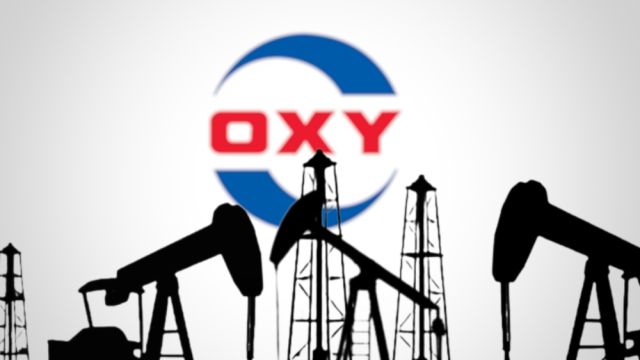
Oxy’s planned divestment of a 30% interest in the CrownRock assets was part of its post-acquisition debt-reduction plan. (Source: Shutterstock)
Ecopetrol SA walked away from a $3.6 billion deal to acquire a stake in Occidental Petroleum’s recently acquired CrownRock LP assets primarily because of the negative impact to the leverage ratio, Ecopetrol executives said during an Aug. 14 second-quarter earnings call.
Politics, anti-fracking sentiments and the potential of a recent gas discovery in Colombia also played a factor, Ecopetrol executives said.
Ecopetrol had been in talks with Occidental to buy a 30% stake in CrownRock. But the deal’s price tag would have exceeded its debt-to-EBITDA threshold of 2.5x, executives said.
“Ecopetrol already has a high level of debt and with the [Oxy] transaction we would exceed this threshold,” said Ecopetrol’s CEO Ricardo Roa. “A debt-to-EBITDA ratio of 2.5 times is too high.”
Ecopetrol’s ratio calculation factored in the potential for lower oil prices and the resulting impact, Roa said.
Oxy agreed to acquire CrownRock in December 2023 in a deal valued at $12 billion. Oxy’s planned divestment of a 30% interest in the CrownRock assets was part of its post-acquisition debt-reduction plan.
The deal closed on Aug. 1, after Occidental reported earlier that day that Ecopetrol “decided not to acquire any interest in the CrownRock assets.”
RELATED
Oxy CEO Hollub on Divestment Plans: This is Not a ‘Fire Sale’
Secondary factors doom deal
Roa said numerous secondary factors weighed on Ecopetrol’s decision to not move forward with the planned acquisition.
The company needed approval from Colombia’s Ministry of Treasury, which was not on board with the state oil giant taking on 100% in public debt. Roa said the government informed Ecopetrol that it was “unacceptable” to assume such a level of debt.
Ecopetrol —85.5% owned by majority owned by Colombia’s government – also had to consider Colombia’s energy resources and energy security issues faced by the administration of President Gustavo Petro.
Under Petro’s government, the exploration and exploitation of unconventional resources are no longer a top priority.
Ecopetrol initially moved into the Permian Basin to gain experience related to fracking. In 2019, the company established a joint venture in the Midland Basin with Occidental.
The plan under Colombia’s then president Ivan Duque contemplated Ecopetrol taking a leading role in the fracking and production of Colombia’s vast shale resources. However, those plans never materialized due to opposition from a Colombian council that questioned fracking.
Petro is in favor of green energies and against fracking and even importing gas from the U.S. that comes from the drilling process.
Occidental CEO Vicki Hollub said during the company’s Aug. 8 earnings call that executives though they had a deal with Ecopetrol but that “Petro of Colombia didn't approve of it and he's made it very clear to the world that he's anti-oil and gas, anti-fracking and anti-U.S.,” Hollub said.
Roa also highlighted a recent gas find at the Uchuva-2 offshore well that opened up potential for Colombia to develop an offshore gas hub. Ecopetrol expects first gas from its offshore region could flow in 2029. Such an achievement would assist the South American country reduce its reliance on LNG imports, principally from the U.S.
Additionally, Ecopetrol has changed its business priorities to focus more strongly on boosting onshore and offshore reserves and production in Colombia in a move to shore up the country’s energy security, Roa said.
Roa said that Ecopetrol, under his lead, was also more focused on developing projects related to the energy transition, decarbonization, energy efficiency, clean and renewable energies. Roa said all these areas formed part of Ecopetrol’s new investment plan.
Recommended Reading
Not Sweating DeepSeek: Exxon, Chevron Plow Ahead on Data Center Power
2025-02-02 - The launch of the energy-efficient DeepSeek chatbot roiled tech and power markets in late January. But supermajors Exxon Mobil and Chevron continue to field intense demand for data-center power supply, driven by AI technology customers.
The New Minerals Frontier Expands Beyond Oil, Gas
2025-04-09 - How to navigate the minerals sector in the era of competition, alternative investments and the AI-powered boom.
BlackRock CEO: US Headed for More Inflation in Short Term
2025-03-11 - AI is likely to cause a period of deflation, Larry Fink, founder and CEO of the investment giant BlackRock, said at CERAWeek.
Murphy Shares Drop on 4Q Miss, but ’25 Plans Show Promise
2025-02-02 - Murphy Oil’s fourth-quarter 2024 output missed analysts’ expectations, but analysts see upside with a robust Eagle Ford Shale drilling program and the international E&P’s discovery offshore Vietnam.
More Players, More Dry Powder—So Where are the Deals?
2025-03-24 - Bankers are back and ready to invest in the oil and gas space, but assets for sale remain few and far between, lenders say.
Comments
Add new comment
This conversation is moderated according to Hart Energy community rules. Please read the rules before joining the discussion. If you’re experiencing any technical problems, please contact our customer care team.






